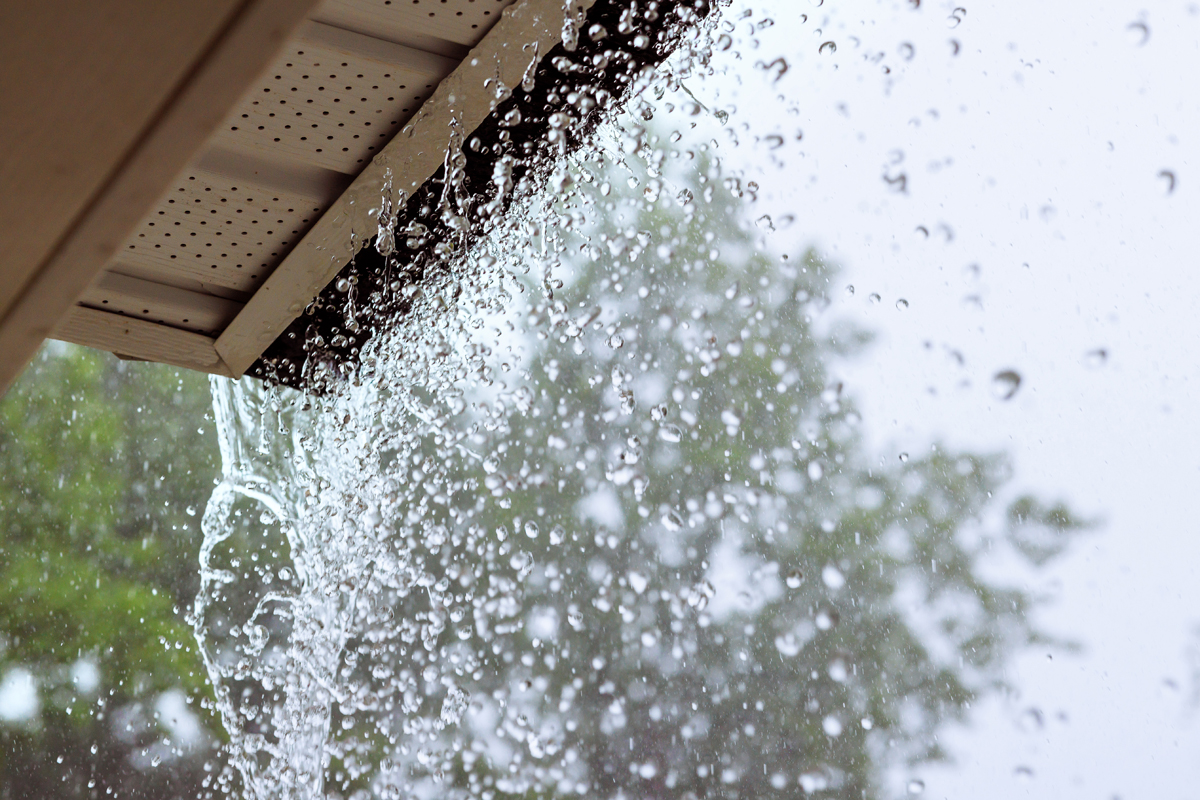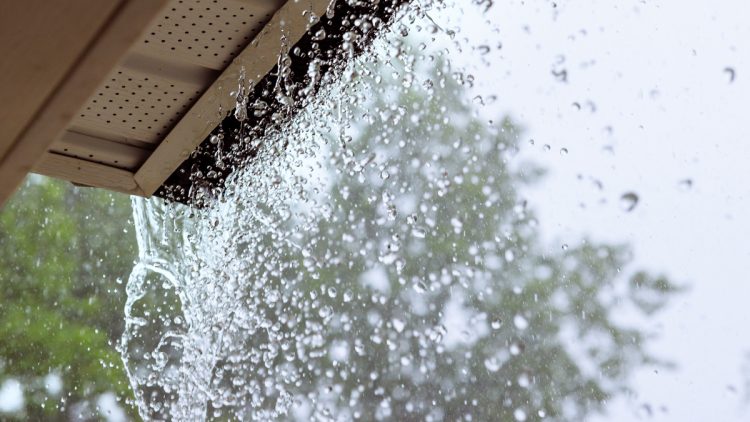Are Rain Gutters Necessary?

Rain gutters are generally considered essential in Arizona, even though the state is known for its dry climate and lower annual rainfall compared to other regions. Here’s why rain gutters are still necessary for homeowners.
Rain Gutter Advantages
Rain gutters are designed to efficiently manage rainwater. By directing rainwater away from your home, these gutters can prevent a variety of issues. Let’s take a look at the main benefits of rain gutter installation below.
Prevent Water Damage
The main purpose of installing rain gutters is to prevent water damage throughout your home. When rainwater flows off the roof uncontrolled, it can seep into the walls and foundation.
As time goes on, this can cause mold, wood rot, and the overall deterioration of building materials. Gutters are designed to protect the vulnerable areas of your home.
Monsoon Season Protection
Arizona experiences monsoon season from June to September, during which sudden and intense rainstorms can occur. These heavy downpours can lead to significant water runoff that, if not properly managed, can cause damage to your home’s foundation, landscaping, and exterior walls.
The monsoon season can bring flash floods, especially in desert areas. Rain gutters help direct water away from your home, reducing the risk of water pooling around the foundation, which can lead to erosion and structural issues.
Preserve Your Foundation
Without gutters, rainwater can accumulate around the base of your home, potentially seeping into the foundation and causing cracks or shifting. Over time, this can lead to costly repairs.
Gutters help prevent soil erosion around the foundation, which is particularly important in Arizona’s dry, sandy soil. Erosion can weaken the foundation and affect the stability of your home.
Avoid Soil Erosion
Rainwater, when falling directly from the roof to the ground, can erode the soil around your home. Erosion can ultimately damage landscaping and create unstable surfaces.
Gutters can help by directing water toward specific drainage areas. This will preserve the integrity of both your soil and landscaping.
Maintain Landscaping
Uncontrolled rainwater can wash away mulch, plants, and other landscaping features. Gutters help channel water away from these areas, preserving your landscaping investment.
In a state where water conservation is important, gutters can be connected to rain barrels, allowing you to collect rainwater for use in your garden during dry periods.
Prevent Roof and Exterior Damage
Gutters prevent water from accumulating on the roof, reducing the risk of leaks, mold, and rot. This is especially important in Arizona, where the intense sun can already cause wear and tear on roofing materials.
Gutters help keep water from running down the sides of your home, protecting siding, stucco, and paint from water damage and stains.
Guard Siding And Paint
When water runs down the side of the house, significant damage can be caused to your siding and paint. As time goes on, it can lead to peeling paint, wood rot, and other issues impacting the home’s exterior.
The installation of rain gutters can prevent this problem by diverting the water away from the walls.
Keep Walkways In Great Shape
Uncontrolled rainwater can potentially damage driveways and walkways. This can lead to cracks and uneven surfaces.
Gutters help to make sure walkways always remain the best shape possible.
Increase Home Value
Well-maintained gutters contribute to the overall curb appeal and value of your home. Potential buyers may view a home without gutters as less protected from the elements, which could affect resale value.
JLC Enterprises Offers Rain Gutter Installation In Phoenix, Arizona
If you are looking for Rain Gutter Installation services in Arizona, look no further than JLC Enterprises Inc. JLC offers Rain Gutter Installations to the entire Phoenix, Arizona Valley, including, Phoenix, Gilbert, Glendale and more. Call us today at 480-967-9183 for more information.

